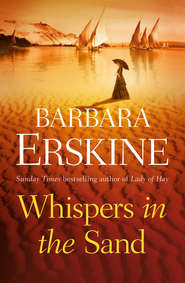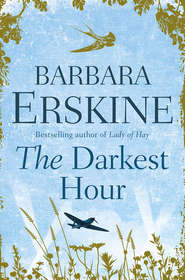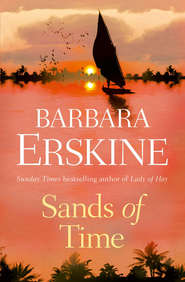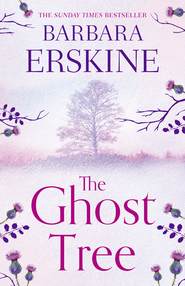По всем вопросам обращайтесь на: info@litportal.ru
(©) 2003-2024.
✖
House of Echoes
Автор
Год написания книги
2019
Настройки чтения
Размер шрифта
Высота строк
Поля
They pulled up at last outside the village shop. ‘Are you going to introduce yourself?’ Luke smiled at her. ‘The new lady of the manor.’
Joss shrugged. ‘What do I say?’
‘Tell them the truth. You’ve got to tell them, Joss. They are the post office. They’ll be delivering mail pretty soon. Go on. Give the village something to gossip about.’ He swung himself out of the car.
The wind was icy, worrying the branches of the ash tree which grew at the road junction opposite like an angry dog, tearing off the remaining leaves. Joss followed him, turning up the collar of her jacket with a shudder as the wind tore at her hair and whipped it into her eyes.
The shop was empty. They stood looking round, savouring the mixed smells of cheese and ham and exotic smoked sausages and the silence after the wind. Moments later the post mistress appeared from a doorway at the back of the counter. She was carrying a cup of coffee. ‘Hello, my dears. How can I help you?’ She set the cup down. Then she peered at Joss. ‘Of course, you were in here the other day, asking about the Hall. Did you manage to find Mary Sutton?’
Joss shook her head. ‘There was no one there when I knocked but I met the vicar up at the church and he gave me the address of his predecessor who knew the Duncans.’
‘I see.’ The woman put her head on one side. ‘You’ve some special interest in the Hall, have you?’ Her eyes were bright with curiosity.
Joss heard Luke chuckle. She trod heavily on his toe. Smiling, she held out her hand. ‘Perhaps I should introduce myself. I am Joss Grant – this is my husband, Luke. It looks as though we are going to be living there, at least for a while. Laura and Philip Duncan were my parents. They gave me up for adoption when I was a baby, but it appears that they left the house to me.’
The woman’s mouth dropped open. ‘Well I never! Oh, my dear! That great place!’ Far from being pleased as Joss expected, she appeared to be horrified. ‘You’re never going to live there! You couldn’t possibly.’
Taken aback, Joss frowned. ‘Why on earth not? It didn’t look to me as though it was in too bad condition.’
‘Oh, I didn’t mean that.’ The woman was immediately embarrassed. ‘Take no notice of me! It’s a lovely place. You are very lucky. The village will be pleased. The Hall has been empty too long. Much too long.’ She shook her head. ‘There’s me forgetting my manners. I’m Sally Fairchild. My husband Alan is the post master here; I’m the deli counter.’ She laughed. ‘Alan retired from his accountancy five years back and we thought we’d take over a village shop in our declining years. Thought it would be a nice restful job. Haven’t had time to sit down since …’
Luke looked across at Joss as they settled themselves back into the car. On the back seat there was a box of supplies – enough for an army for three days at least, Luke had said with a smile, as they selected a picnic for themselves from Sally Fairchild’s luxurious counter. ‘So. What do you make of all that?’
Joss reached for her seatbelt. ‘Nice woman. I had the feeling though, that whatever she said about the village being pleased, they wouldn’t be.’
Glancing into the mirror Luke pulled the car away from the kerb. ‘Up here? She certainly had reservations, didn’t she. Do you still want to stop off and see this Mary Sutton?’
Joss shook her head. ‘Let’s go to the house first. I can’t wait to see what it’s like inside.’ She reached into the glove compartment and brought out the box of keys, hugging it against her chest. ‘We can’t expect the locals to accept us just like that. When I rang David Tregarron to tell him our plans he said it would take twenty years for anyone round here to accept a stranger. As I was a blood relation, probably nineteen years eight months.’
Luke laughed.
‘Up there now, round the green,’ Joss went on. ‘I think the drive must lead off the lane beyond the church. He said he would come and see us.’ David had been more than just her boss. Confidant, friend, sparring partner, his warmth and genuine regret when she had phoned him a couple of days earlier had touched her deeply. ‘There. That must be it.’
The wrought iron gate, standing between two stone gate posts, topped with moss-covered pineapples, was standing half open in the tall hedge. Luke drew the car to a halt. Climbing out he peered up the drive as he tried to force the gate back over the muddy gravel. There was no notice to say this was Belheddon Hall, no sign of the house as the overgrown driveway curved out of sight between the high laurel hedges.
He climbed back into the car. ‘OK?’ Her excitement was tangible. He reached across and squeezed her hand. ‘The return of the prodigal daughter. Let’s go.’
The drive was not very long. One sweep past the hedges and they were there, drawing up on the grassy gravel in front of the house. Luke pulled up and cut the engine.
‘Joss!’ It was all he said. For several seconds they sat in silence, staring through the windscreen.
It was Joss who moved first, opening the door and stepping out into the freezing wind. Silently she stood staring up at the house. It was her birthplace. Her inheritance. Her home.
Behind her Luke stood for a moment watching her. He was intensely proud of his wife; she was beautiful, intelligent, hard working, sexy – sternly he cut short that train of thought – and now an heiress as well! Silently he stepped up behind her and put his hands on her shoulders. ‘So, how does it feel to be home?’ he said softly. He had read her thoughts exactly.
She smiled, brushing her cheek against his hand. ‘Strange. A little frightening.’
‘It’s a big house, Joss.’
‘And we have no money.’ She turned and looked up at him. ‘You have always liked challenges.’ Her eyes were sparkling.
‘If we’re seriously going to live here for any length of time, we’ll need cash from somewhere for taxes, heat, electricity and food. On top of that there will be endless ongoing repairs. Shouldn’t be a problem.’ He grinned. ‘Your mother did leave you a magic lamp, a bag of gold coins and six live-in servants?’
‘Of course.’
‘Then, as I said, no problem. Come on. Where’s the key? Let’s go in.’
The keyhole in the front door was two inches high. Joss already knew the contents of the key box by heart; there was nothing in there which would fit. She reached for a couple of yale keys. Both were labelled ‘Back door’.
They walked along the front of the house, passing the shuttered lower windows and turned through the stone archway. There a square range of coach houses, garages and stables surrounded a cobbled courtyard one side of which was the east wall of the house. By the back door stood a black iron pump.
‘Joss!’ Luke stared round. ‘You realise what I could do here, don’t you! I’ve had the most brilliant idea! Looking for jobs in London will probably be a dead loss, but I could work here!’ In three steps he had reached one of the doors. Pulling it open he peered into an empty garage. ‘Cars! I can restore cars. I can start again. My God, there would be room to do it, too. It would give us a living of sorts.’ Excitedly he peered into the stable and outbuildings.
Behind him Joss was smiling. The house was working its spell. She could see his depression lifting as she watched. She stood there for a few minutes more, then, unable to resist it any longer she turned alone to the back door.
It was swollen with damp and grated against the York stone flags of a narrow dark hallway. ‘Wait for me!’ Coming up behind her, Luke caught her hand. ‘I think this is somewhere I should carry you over the threshold, don’t you?’
Giggling, Joss clung to his neck as he swept her off her feet and he walked with her into the darkness of the first room down the passage. There he set her down, panting. ‘My God, woman. What have you been eating? Bricks?’
They stared round in silence. The huge room was shadowy, a pale, reluctant light filtering around the edge of the shutters. ‘It’s the kitchen,’ Joss whispered. A huge fireplace took up the whole of one wall. In it a double size cooking range slumbered like some great black engine. On it stood an iron kettle. In the centre of the room stood a scrubbed oak table with round it six bentwood chairs. One was pulled out, as though the person seated on it had only a moment before stood up and left the room. To the left a glass-fronted dresser, dusty and hung with spiders’ webs, showed the gleam of china.
Silently, hand in hand like two trespassing children, Joss and Luke moved towards the door in the far wall. Over it a board hung with a line of fifteen bells, each controlled by a wire, showed how in days gone by the servants had been summoned from the kitchen quarters to other parts of the house.
Beyond the kitchen they found a bewildering range of small pantries and sculleries, and at the end of the passage a baize-lined door. They stopped.
‘Upstairs and downstairs.’ Luke smiled, running his hands over the green door lining. ‘Are you ready to go above stairs?’
Joss nodded. She was trembling. Luke pushed the door open and they peered out into a broad corridor. Again it was shadowy, bisected by fine lines of dusty sunlight. Here the scrubbed flags finished and they found themselves walking on broad oak boards which once had carried gleaming polish. Instead of an array of exotic carpets a drift of dried leaves had blown in under the front door and lay scattered over it.
To the right on one side of the front door they found the dining room. A long table stood there in the shuttered darkness, surrounded by – awed, Luke counted out loud – twelve chairs. To the left a large door, much older than anything they had seen so far, Gothic, churchlike, led into an enormous, high-ceilinged room. Amazed they stood staring up at the soaring arched beams and the minstrel’s gallery, screened by oak panelling, carved into intricate arches. ‘My God.’ Joss took a few steps forward. ‘It’s a time warp.’ She stared round with a shiver. ‘Oh Luke.’
There was very little furniture. Two heavy oak coffer chests stood against the walls and there was a small refectory table in the middle of the floor. The fireplace still held the remains of the last fire that had been lit there.
On the far side of the room an archway hung with a dusty curtain led into a further hallway from which a broad oak staircase curved up out of sight into the darkness. They stood peering up.
‘I think we should open some shutters,’ Luke said softly. ‘What this house needs is some sunlight.’ He felt vaguely uneasy. He glanced at Joss. Her face was white in the gloomy darkness and she looked unhappy. ‘Come on, Joss, let’s let in the sun.’
He strode towards the window and spent several minutes wrestling with the bars which held the shutters closed. Finally he managed to lift them out of their sockets and he threw open the shutters. Sunshine poured in across the dusty boards. ‘Better?’ He hadn’t been imagining it. She was deathly pale.
She nodded. ‘I’m stunned.’
‘Me too.’ He looked round. ‘What this room needs is a suit of armour or two. You know, we could run this place as a hotel! Fill it with tourists. Make our fortune.’ He strode across the floor to a door beyond the hall and threw it open. ‘The library!’ he called. ‘Come and look! There are enough books here even for you!’ He disappeared from sight and she heard the rattle of iron on wood as once again he fought with a set of shutters.
She did not follow him for a moment. Turning round slowly she stared about her at the empty room. The silence of the house was beginning to oppress her. It was as if it were listening, watching, holding its breath.
‘Joss! Come and see.’ Luke was in the doorway. He was beaming. ‘It’s wonderful.’
Joss gave herself a small shake. With a shiver she followed him through the doorway and immediately she felt better. ‘Luke!’ It was, as he had said, wonderful. A small, bright room, full of mellow autumn light, looking down across the back lawns towards the small lake. The walls were lined to the ceiling with books except where an old roll top desk stood, with in front of it a shabby leather chair. Round the fire stood a cluster of three arm chairs, a side table, an overflowing magazine rack and a sewing basket, still with its silks and needles, witness to the last hours of Laura Duncan’s occupancy.











